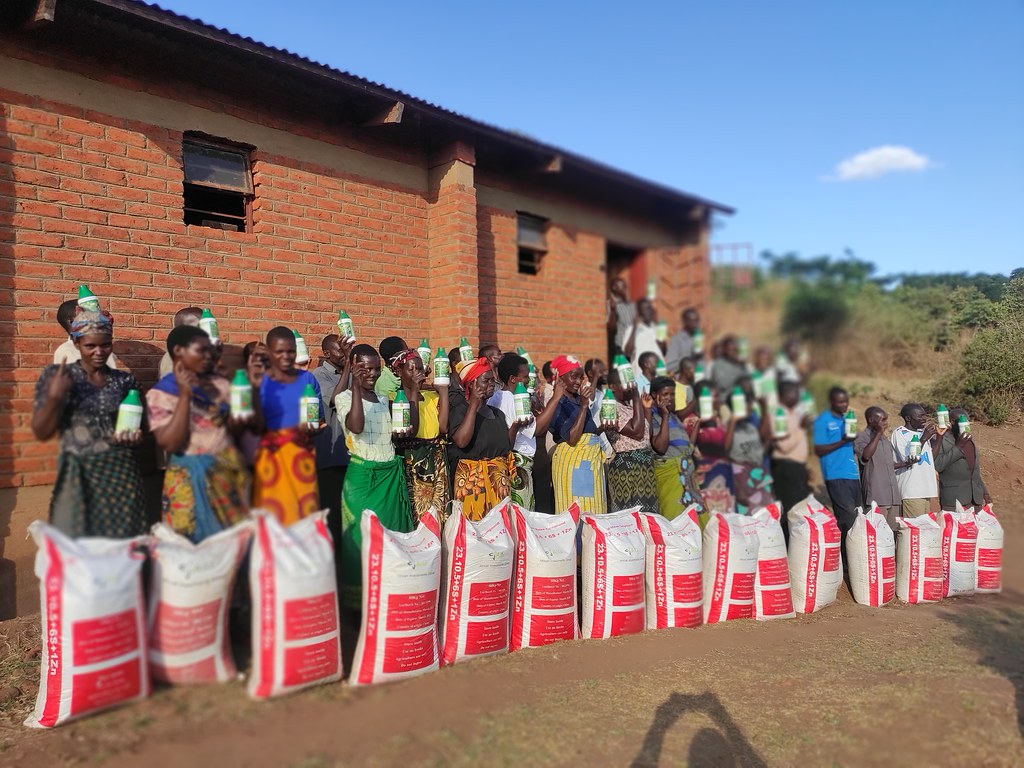The rains stop, and by early to mid-May the harvest is collected by hand one row, and one field at a time. A good year. But even though the bamboo grain bins are nearly full there is no time to enjoy the victory, no time for a few days off, no time. Almost immediately after the crops are collected for one year it is necessary to begin field cultivation for the next season. While it is only May, November will come soon enough, and torrential rains will drench the fields. And wash away seeds that have not taken root. Since crop production is carried out on an individual family level, and work is done with only the assistance of a hand-made, hand-held hoe, it takes weeks to clean the fields of the debris from the last season and cultivate them for the next crop. Even when the fields are cleared and cultivated, the planting of one kernel of seed at a time is a long, hot, and tedious job. It’s all hands-on deck if the task is going to succeed, and every family member from the youngest to the oldest make their way to the fields to engage in the back breaking preparation of the dry earth for the reception of a new crop. It is in this setting that Wilson Tembo, Executive Director for Action for Progress, paints a picture of the success of the Joseph Projects. He begins,
“The farming season is here again. As we walk through villages, we see men and women carrying their hoes back and forth, to and from the fields. All over the nation thousands can be seen working on their farms. Preparation of the land is now complete, and planting is in progress. Farmers who prepared early are busy buying and distributing seed and fertilizer. These are the farmers where farm inputs are available and affordable.
To help poor farmers the government introduced a program called, ‘Affordable Input Program’ (AIP). This allows farmers to purchase fertilizer and seed at subsided prices. It is designed for the poor, so to qualify for this program is limited. It is with this government program in mind that Action for Progress, in cooperation with the Malawi Project, launched the Joseph Projects to assist in the drive to eradication of hunger by improving the financial status of village households through farming. The portion of the program carried out by AfP centers around a revolving program of giving farmers the needed inputs that will bring independence. The loans are paid back after the harvesting of crops.
Following a successful second year of the program AfP representatives set out to deliver assistance for the next year. Farmers in the AfP program this past year noted they would not need assistance for the upcoming year. Their success had carried them through.
Speaking for the committee at Joseph Project 2 the committee chair Mr. Mapila applauded the unity and hardworking spirit of the farmers that enabled them to have bumper crops and reaching their goals the previous year. He called for a continuation of the unity and hard work in the upcoming year. He noted this will be of help to all of them as well as helping the government to eradicate hunger and poverty.
This year will be the first-time farmers have been given D. I. Grow fertilizer in liquid form. Action for Progress saw the need for instructions to go with the fertilizer, so they engaged D. I. Grow distributors to each the farmers at the Joseph Project sites the benefits of the liquid fertilizer and how to apply it.
Mrs. Machika, a G. I. Distributor explained, ‘Among other things, it retains soil fertility. It takes 6 hours after application to begin working, and it is suitable for all weather conditions,’ she said. The audience was quite attentive to the presentation. Smiles of hope could be seen throughout the audience.
For those of us at Action for Progress it was deeply rewarding to see farmers pose question after question and have such a strong interest in the program. After receiving seed and fertilizer Evelyn Magombo said she was very happy, ‘We thank God for this project. Our friends are struggling to buy seed and fertilizer but here we are … I have my own package. Now I will be waiting for the rains.’
Both Evelyn and Mrs. Machika agreed about how positively this program is impacting the lives of small farmers. To them hard work is the only way to pay back this project.”



